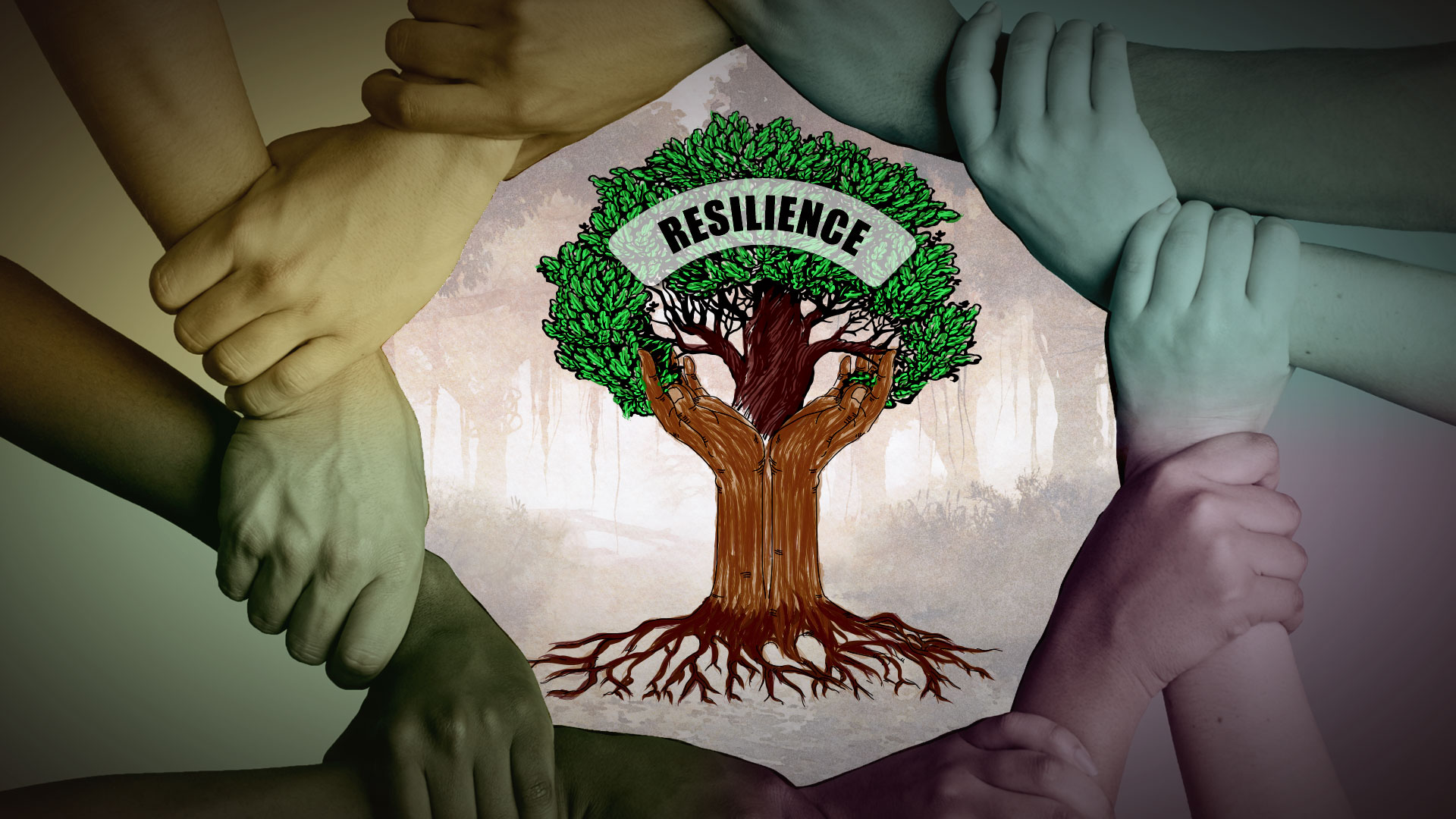Date:16 March 2023
Content Sections
- ● Time for a check-in
- ● The values crisis
- ● The Resilience ingredients list
- ● The Resilience Method
- ● Resilience tips and resources
By Rob Verkerk PhD
Founder, executive & scientific director, ANH Intl
Scientific director, ANH-USA
Scientific director, ANH Europe
Are we equipped for what lies ahead?
My sense is we – as diverse societies across the globe – ones that have faced intense fragmentation and polarisation over the last 3 years are, by and large, not well equipped.
Simply put, we are not sufficiently resilient.
Resilience, in this context, means nothing more than our ability to bounce back and recover following exposure to any kind of stressor. You will have noticed that our recent experience of stressors has been unprecedented in most people’s living memory.
Among the most obvious stressors, has been a pandemic that is ever more widely accepted as likely the result of a lab leak. It’s been so much more than a challenge from a virus and the long covid that now conveniently acts as a smokescreen for C19 vaccine damage.
Let’s add to the mix a few more recent stressors that will be testing our capacity for resilience to the full: Lockdowns, coercive vaccination policies, silencing of scientific dissent, threats of reprisal for dissenters, censorship, collapsing health systems, fundamental rights abuses, sidelining of medical ethics principles, a transition towards authoritarian rule, a cost of living crisis, an energy crisis, a magnifying environmental crisis, and a war in Europe. Then let’s not also forget the global economic, financial or banking crisis that’s set to give Central Bank Digital Currencies (CBDCs) ever more traction (see here in UK and here in US).
That’s not even a complete list of the challenges being thrown at us.

Natural systems are shaped by the capacities of those organisms best able to cope with, and evolve around, the rigours and dynamism of their environments. In this sense, Nature is likely the teacher most able to help us adapt to our current, highly changeable, and stressful environments.
Part of the reason that even those of us who view ourselves as being awake to these threats are relatively unprepared for what lies ahead, is that many of us in ‘the movement’ (one so fragmented and disunited it doesn’t even have a name!) have been heavily focused on what we don’t like about what’s been going on.
Most of us don’t like, and wish to oppose, the rise of authoritarism, the lies, the coercive policies, the suppression of dissent, the restrictions on our freedoms, the sidelining of medical ethics, the discounting of natural therapies, the cancel culture….the list goes on.
Some have been exposed to so much fear that they can barely function. Others, still, are managing the effects of long covid, C19 jab injuries, or both, and are physically or mentally unable to head up the front lines.
The sheer brazenness, scale and speed of implementation of ‘the plan’ put many on the back foot. This has meant we’ve been more reactive than proactive. Three years in, it’s time to change that, as we know, from none other than Bill Gates, there’s plenty more “disasters” in store for us.
>>> Watch our 5 ½ minute video, A Crash Course in Resilience, on why low resilience was a major reason for covid-19’s impact in the earlier part of the pandemic.
Long and short, there’s just not been enough focus on what we need to build our resilience. To provide the things we’re going to need to allow us to face head-on the world around us, and carve out a pathway we feel justified in handing to the next generation.
Time for a check-in
As the march continues towards globalised, authoritarian control over health, the food supply, financial systems, a gamut of major industries, the media and the many other systems that affect almost every facet of our material lives, it is essential that we check in with how so-called “progress” coincides with our values and virtues that feed into the essence of being human.
Values and virtues that we consider are fundamental requirements for functional, enlightened societies that live harmoniously, both with each other, and with the natural world around us. Make no bones about it, these are the very things that have been shattered, wittingly or unwittingly, during Project Global’s crusade.
Are we concerned, for example, that values like our privacy, autonomy (self-control), self-determination, health choices and even our security, are becoming ever more at risk?
From the sentiments expressed in most of the non-legacy media streams we’ve been monitoring over the last three years, it looks like these issues might be near, or at, the top of many people’s list of values that they feel are increasingly threatened by authoritarian creep.
On the health side, the last three years have shown us, in no uncertain terms, that the puppet masters of Project Global don’t value self-determination or health choices. Especially not our use of natural products if they have something shiny, new and patented to push in our arm or into our mouths instead. That’s despite evidence, such as that which we published, that shows self care works remarkably well in the face of covid-19, as well as other evidence demonstrating that natural products have been the real winners in the ‘war on covid’ in terms of both effectiveness and value.
So we won’t be talking here about how badly wrong they got it when they told us lockdowns, masks and genetic vaccines would be our saviours. Or about where we are after they tried to convince us via The Lancet in 2020 that SARS-CoV-2 couldn’t possibly have been the result of gain of function research. Something, incidentally, that I viewed as a highly likely scenario back in early 2021, as given in my answer to the second question in one of our Q&As.
If we’re going to shine a light on the things we feel we will need to help build societies that are independent of these disempowering globalised processes, we need to understand what kind of ‘things’ we’re talking about.
I’m thinking here of attributes or elements that might be regarded as values, virtues, qualities or skills. If there’s one word that wraps all of these elements up as pre-requisites for the newfound resilience we’re going to need going forward, I can’t think of one more appropriate than ‘ingredients’. There’s a comments section below this article and we’re open 24/7 to input and ideas.
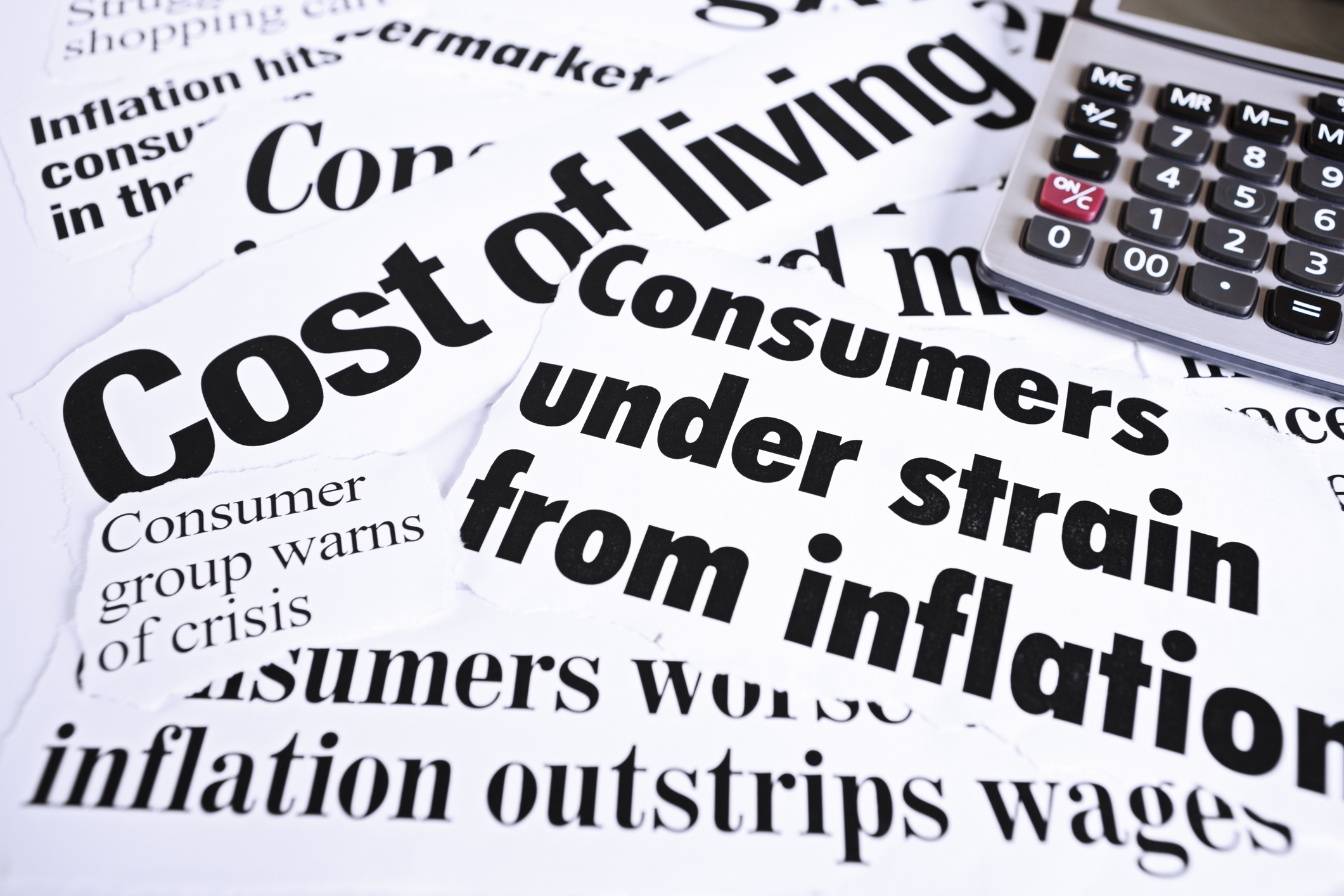
A succession of crises are placing people under ever greater stress which they are less able to handle if their resilience has deteriorated.
The values crisis
While societies navigate multiple crises (see above), there is one crisis few are talking about.
It’s the values crisis. Which values are most important to you? Do others around you share the same values?
With the goalposts on values rated as being of key importance by the drivers of Project Global, do you remember being asked what you felt on these all-important issues?
Do any of the values now attributed to modern society, such as the unconditional honouring of the scientific establishment, relate to our resilience, not to be confused with health? Resilience just happens to be one of the most critical elements required for the survival of our species.
In a world in which material wealth has become the dominant aspiration, the value of science and technology, and the multitude of products that it spawns, has been bolstered at the expense of non-material values, like self determination, social integrity, freedom of speech, connection with nature, even religion and spirituality.
It is well known that exposure to fear triggers the more primitive parts of the brain, especially the amygdala locked away in our more primitive ‘monkey brain’, setting off a sequence of autonomic, hormonal and motor responses that have been developed through millennia of evolution to give us the best chance of surviving exposure to real threats. What’s more, if you keep people in a sustained state of fear or anxiety, they are unable to engage the rational, reasoning, and critical thinking parts of our brain in the prefrontal cortex. They get locked in their ‘monkey brains’, and fail to tap into the rational, reasoning wonders of the more advanced ‘human brain’.
To help break this down a bit further, let’s look briefly at someone who has a fear of snakes. When he or she first sees a snake in a secured terrarium in a zoo, the person will often experience a rush of adrenaline through the body because key centres in the midbrain, notably the amygdala and hippocampus, have been triggered. Then, typically, in a matter of seconds, they start to rationalise the threat posed to them by the snake, which is zero given the glass barrier between them. That processing involves the prefrontal cortex, the most recent, evolutionarily advanced, rational and reasoning part of our brains tucked away in the frontal lobe
Put that same person in a jungle where they’re told snakes are present, even if they can’t see one, they will be filled with fear, petrified even, immobilised by the fear. They simply can’t process the threat. Their more primitive midbrain has taken over and the advanced, frontal lobe is disengaged, unable to rationalise and solve the problem.
Have you noticed that those of us who have spent thousands of hours investigating the realities of the covid threat have experienced little fear over SARS-CoV-2? We’ve felt no need to wear masks or rush to have our C19 jabs? Yet those who’ve sourced most of their information from the ‘fear porn’ issued by the mainstream media are locked into a place of fear, or, its long-term partner, anxiety.
As science and technology aspire to dominance, everything is set to skew values systems in the direction of consumerism and materialism.
Advertisements for a car, cell phone or hairdryer are designed to taunt consumers by appealing to emotions, not critical minds. Social media platforms have not just become platforms for us to communicate with each other. They are Trojan horses for something much more sinister, to get inside our minds and emotional drivers so they can make money from advertisers. These social media companies have bucket loads of data to work from, pass on or or sell on, derived from the huge amounts of data they’ve amassed from our internet surfing patterns, the kinds of music or videos we watch, the people with which we communicate on social media, and our shopping habits.
Don’t doubt for a minute they don’t know the IP addresses, and thus the street addresses, of most of us who don’t subscribe to ‘the narrative’. Don’t doubt that they can’t select what kinds of information we’re exposed to, that affect our perspective on a wide range of issues.
The reality is that some of the biggest decisions that affect all of us are being made by power brokers who have never asked us about our views, or our values. They are quite simply not interested in the democratic process because it doesn’t wash well in an increasingly authoritarian, globalised society.
The Resilience ingredients list
Imagine now you’re reading a cookbook. First you have the description of the dish, then you have the ingredients list and then the method. That’s what we’re going to do here. Our dish is called Resilience for Change, which can be described loosely as a pathway to develop individual and community resilience.
We have 22 ingredients, 23 including resilience itself. They’re broken down into 4 discrete groups, making them easier to remember if you don’t have the recipe in front of you.
We offer them in a pictorial representation for your perusal and reflection in Figure 1 (explanation follows). We’ve represented human hands as the roots and support for an oak tree, itself a symbol of resilience.
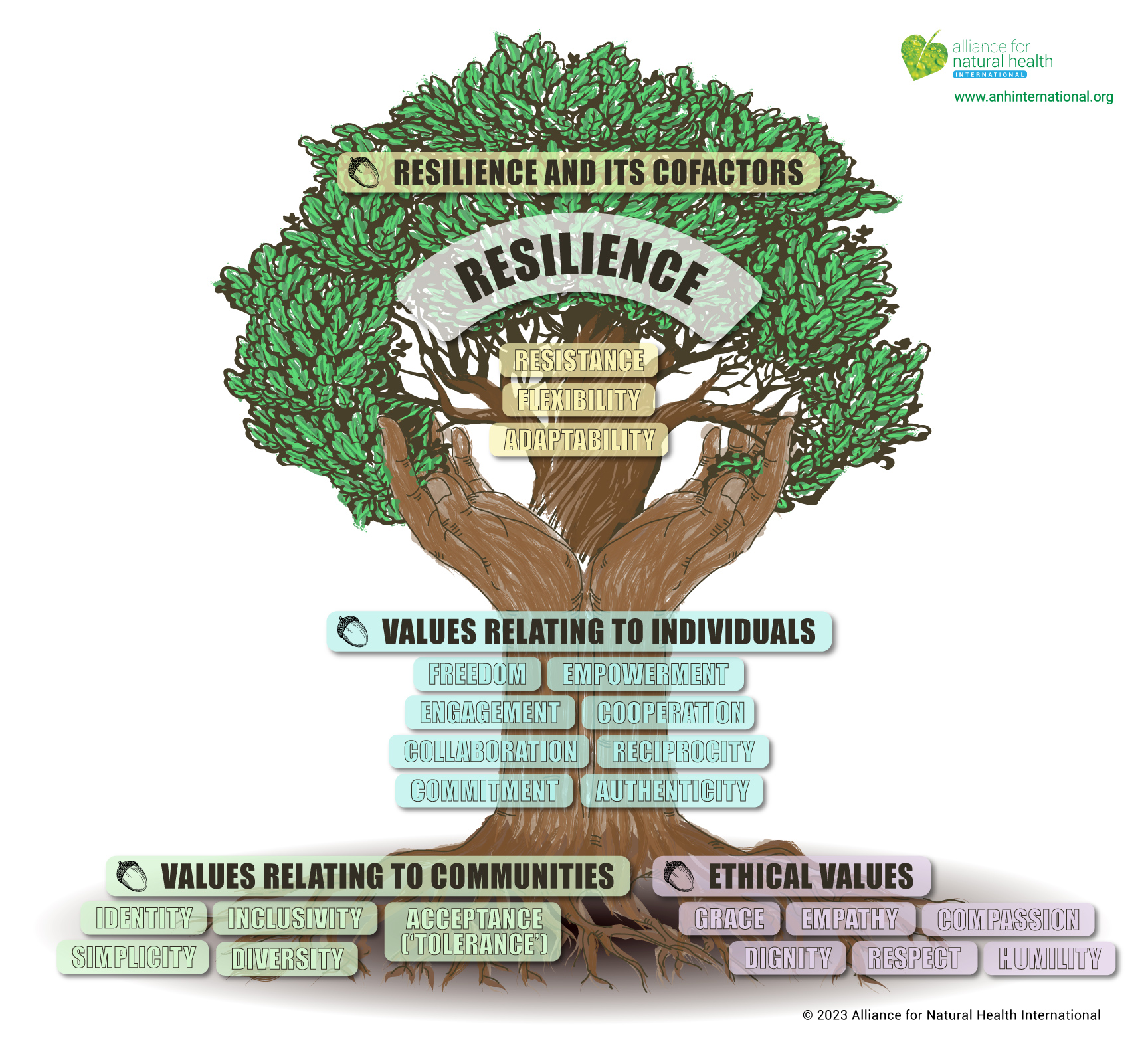
Figure 1. Individual and community values for health regeneration and transformation
As we might have different perceptions about each of the ingredients, I’ve included a short explanation with key implications after each, these reflecting my interpretation of their meaning in this specific context. While I’ve reviewed dictionary definitions for each, I have elaborated on these when they have been too limited in scope to stretch to this context.
GROUP 1: Resilience and its cofactors
- Resilience
Explanation: our capacity to bounce back and recover from any stressor, be it emotional, psychological, physiological, physical, or chemical.
Implication: A resilient human (or community) can withstand a diverse range of stressors, is less susceptible to the negative effects of the stress (sometimes even benefiting from it), and has a wider ‘adaptive range’ than those who are not resilient. Resilience allows an individual (or community) to rapidly regain positive adaptive homeostasis. - Resistance
Explanation: our ability to resist harmful influences, whether biological, chemical, social or political.
Implication: Socially, such resistance requires taking action, often requiring us to stand up and speak out against harmful influences - Flexibility
Explanation: our ability or capacity to yield to changes, whether these are physical, physiological (including metabolic), psychological (including emotional), biological, cultural, intellectual, or environmental.
Implication: Flexibility helps extend our adaptive capacity and offers us the capability to navigate challenging situations and environments without negative consequences. - Adaptability
Explanation: our ability to respond appropriately to many different kinds of things in the face of changing environments around us.
Implication: adaptable people still find ways of flourishing when they encounter unexpected circumstances or changing environments.GROUP 2: Values relating to individuals
- Freedom
Explanation: the absence of coercion or constraint in choice or action.
Implication: freedom is a fundamental right that allows us to determine our own destiny. Free will, in the absence of unnecessary constraint, allows us to think independently, speak and share information openly, and make our own choices, so helping each of us to create unique lives that are the inimitable expression of us as individuals. - Empowerment
Explanation: the sense of self-control and self-determination over one’s life.
Implication: the ability for us to feel in control of our own lives allows us to develop the skills, knowledge and experience necessary to look after ourselves (self-care) and contribute to society or other causes that gives us meaning or purpose in life. - Engagement
Explanation: an individual’s ability to involve themselves in a task, project or community.
Implication: humans are inherently social and being motivated to take part and share tasks with others provides greater benefits than when individuals are disengaged and isolated. - Cooperation
Explanation: the ability of individuals within a community to come together to help deliver a benefit that is beyond the capability of any single individual.
Implication: we are often able to achieve more when we come together as groups or teams, pool our ideas and nurture diverse opinions and problem-solving abilities. - Collaboration
Explanation: to extend cooperation with others that are not immediately connected, including those outside a given community, to help deliver wider benefits.
Implication: the scale and multi-disciplinary nature of the challenges we face requires a diverse range of people and organisations to come together, share information, resources, activities and capabilities, and participate collaboratively in ways that facilitate the regeneration and transformation of failing legacy systems, including health care, education and media. - Reciprocity
Explanation: the quality or state of giving back to those from which benefits have been received.
Implication: This is the way of nature, the way of energy, and almost certainly the way of universe. Francis of Assisi reflected on this fundamental truism saying, “For it is in giving that we receive”. - Commitment
Explanation: an agreement or pledge to do something that will yield ongoing or future benefits to people within or outside a given community.
Implication: the strong sense of intention and focus that comes from committing to something that has been demonstrated time and time again to be the best way of delivering results that often extend beyond self-interest and so help to satisfy higher human needs. - Authenticity
Explanation: Merriam-Webster defines it as the capacity and ability to be “true to one’s own personality, spirit, or character”, while the Cambridge dictionary defines it as “the quality of being real or true”.
Implication: Our ability to express our authentic selves is an essential prerequisite to our wellbeing and the realisation of our creative potential, and such expression can only occur if unfettered by undue attitudinal, social, institutional and governmental restrictions.GROUP 3: Values relating to communities
- Identity
Explanation: having a sense of one’s authentic self (note that this definition diverges significantly from the Merriam-Webster version which states “the set of qualities that make a person different from other people”.
Implication: we need to have a strong sense of identity to express ourselves in ways that help us to form social groups of like-minded individuals, appealing to our sense of belonging, helping to nurture us, and allowing us the safety to be able to express our authentic selves. - Inclusivity
Explanation: including all people without any prejudice (the Cambridge dictionary offers the following, “the fact of including all types of people, things or ideas and treating them all fairly and equally”
Implication: inclusivity attitudes or policies shouldn’t be non-discriminatory in certain areas and discriminatory in others, such that they exclude people who have made specific medical choices (e.g. those who have received or not received C19 injections). - Diversity
Explanation: including many different types of people.
Implication: the broader the range of experiences and insights, that speak to a wide range of people, groups and cultures, the more relevant the community, and the wider its appeal and reach. - Acceptance (‘tolerance’)
Explanation: agreement that something is satisfactory, right, or appropriate, even if it wasn’t the case at an earlier time.
Implication: Biological systems often create microenvironments that allow organisms and molecules to co-exist in ways that they wouldn’t tolerate in a different environment. The same applies to people, but acceptance involves more than just being tolerant of someone you might have previously considered a foe, it’s about fully accepting them. - Simplicity
Explanation: ensuring that something is not unnecessarily complicated or natural.
Implication: nature creates equilibrium through the network of interactions and feedback processes that gives its characteristic complexity. But alongside this complexity is a form of parsimony, or simplicity. It lets go what it doesn’t need. As communities (and individuals) we often do better when we do the same. To do this, we benefit from having a good understanding of the difference between the genuine ‘needs’ of the community, as distinct from those things we’re told we need (by authorities and corporations) or the things that are more ‘wants’ than needs.GROUP 4: Ethical values
- Grace
Explanation: the ability to offer love, empathy or compassion even to those whom we might think don’t warrant it.
Implication: there is a good reason why grace has been a central tenet of most, if not all, religious and spiritual traditions that appeal to higher human purpose. - Empathy
Explanation: Merriam-Webster gets it right with this definition: “the feeling that you understand and share another person’s experiences and emotions”.
Implication: This makes it a visceral process that you feel within, as an empath. Psychologists distinguish between emotional and cognitive empathy. - Compassion
Explanation: Dictionary.com defines compassion as follows: “a feeling of deep sympathy and sorrow for another who is stricken by misfortune, accompanied by a strong desire to alleviate the suffering.”
Implication: compassion is often closely associated with empathy, and generally follows it, but the main difference is that it is not just a feeling, it is associated with action. - Dignity
Explanation: The Oxford dictionary defines dignity as “the state or quality of honour or respect”.
Implication: Enshrined in human rights conventions created after the Holocaust, the notion of unconditionally honouring and respecting all human beings has gathered traction. - Respect
Explanation: a sense of the worth or excellence of a person, a personal quality, or an ability
Implication: our ability to offer respect and admiration to those who contribute value to others, society or any other facet of life can act as an important driver or motivator, while those with altruistic goals are often driven to earn respect from others to whom they serve. - Humility
Explanation: being modest, without an inflated sense of self-importance.
Implication: Overblown egos are the biggest problem ‘the movement’ currently has. Time for a reality check, and time to get egos under control.
The Resilience Method
Remember the cookbook analogy? Once you know what ingredients you need, the next part of any recipe is the ‘Method’. That involves the culinary skills that really makes the dish blow people away – or bomb!
It would take a book about the length of Tolstoy’s War and Peace to really drill down into all the qualities and skills needed to help individuals and communities become more resilient.
I’ve listed 17 skills or qualities that we think are needed to create this recipe for both individual and community resilience. In Figure 2, we’ve placed the resilient oak tree from Figure 1 into a forest and listed these skills and qualities on a couple of scrolls either side of it.
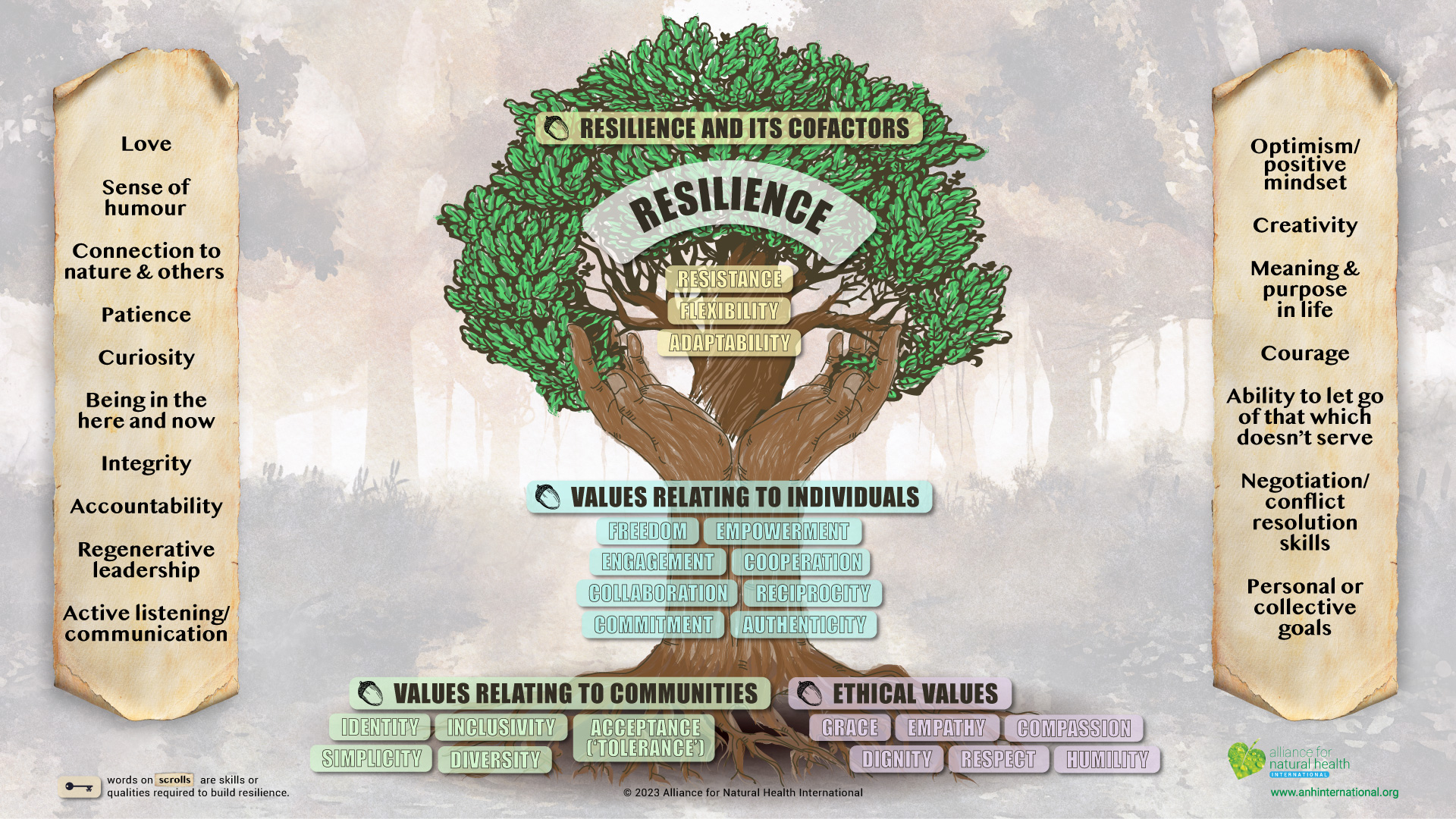
Figure 2. Individual and community values for health regeneration and transformation, with skills and qualities required to build resilience.
>>> Download low resolution PDF for free and share widely.
>>> Go to the ANH Shop to buy a high resolution printable version for your office wall or any other place where it might serve as reminder of the values, qualities and skills needed for resilience
There’s a lot of people on this planet who’ve lost resilience over the last 3 years, and it isn’t something you acquire overnight. It’s about the journey, as much as the destination – one that’s continuously on the move given the dynamic world in which we live.
However, the journey can’t start until we know what direction we want to go in, and I hope this reappraisal of values, qualities and skills required for resilience helps you, loved ones, or those you know, to get back on track.
As nature intended.
Let’s not get health, disease and resilience confused. Keeping us focused on health and disease means our bodies — all 8 billion of them on the planet — can be viewed as opportunities for drug sales.
If we focus on resilience instead, not only do we reduce the risk of others profiteering out of our misfortune, we have the potential to become 8 billion, independent, free-thinking, self-determining humans, all aspiring to robust health, in little need of medication.
This is our choice.
Resilience tips and resources
We’ve produced a lot of content on resilience. Following is a selection:
- Video: A Crash Course in Resilience (how the multi-system crisis we now face, triggered by the covid-19 pandemic) was an inevitable consequence of the lack of adaptation of our thrifty hunter-gatherer genotype to our modern world) (15 July 2020)
- Build your immune resilience – as nature intended (12 March 2020 – the day WHO declared the covid-19 pandemic a public health emergency of international concern (PHEIC) )
- Immune Resilience – adapt, don’t fight (20 August 2020)
- RESET EATING BOOK – how to reset your health and resilience by building metabolic flexibility and resilience, by Robert Verkerk, Meleni Aldridge and Melissa Smith (Alliance for Natural Health Intl, 2022)
- RESET EATING eBook (as above) (21 September 2022)
- Applying resilience to healthcare (22 May 2019)
- What is health? Why resilience should be the new watchword (20 November 2013)
- The Regen Health Blueprint Project (December 2018)
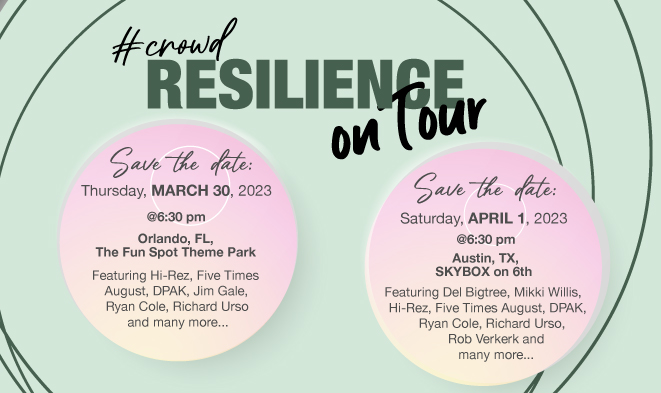
Join a host of prominent Freedom Activists, in-person, including Rob Verkerk PhD in Orlando, FL and Austin, Tx
Thursday 30th March in Orlando, FL, at The Fun Spot Theme Park. Featuring Hi-Rez, Five Times August, DPAK, Jim Gale, Ryan Cole, Richard Urso and many more…
BOOKING LINK: Click here to book to join the tour in Orlando
and
Saturday 1st April in Austin, TX, at the SKYBOX on 6th. Featuring Del Bigtree, Mikki Willis, Hi-Rez, Five Times August, DPAK, Ryan Cole, Richard Urso, Rob Verkerk PhD and many more…
ANH founder, Rob Verkerk PhD, will be speaking at the event in Austin on the 1st April
BOOKING LINK: Click here to book to join the tour in Austin with Rob Verkerk PhD
>>> Visit covidzone.org for our complete curated covid content of the coronavirus crisis
>> Feel free to republish – just follow our Alliance for Natural Health International Re-publishing Guidelines
>>> If you’re not already signed up for our weekly newsletter, sign up for free now using the SUBSCRIBE button at the top of our website – or better still – become a Pathfinder member and enjoy benefits unique to our members.
>>> Return to homepage
